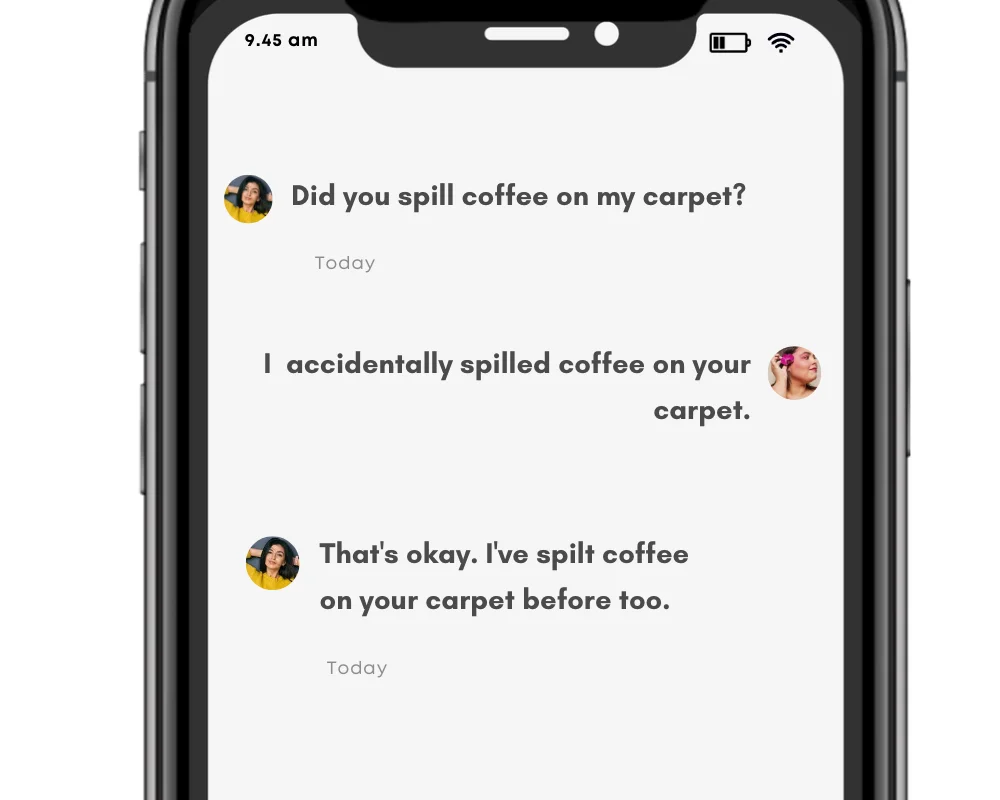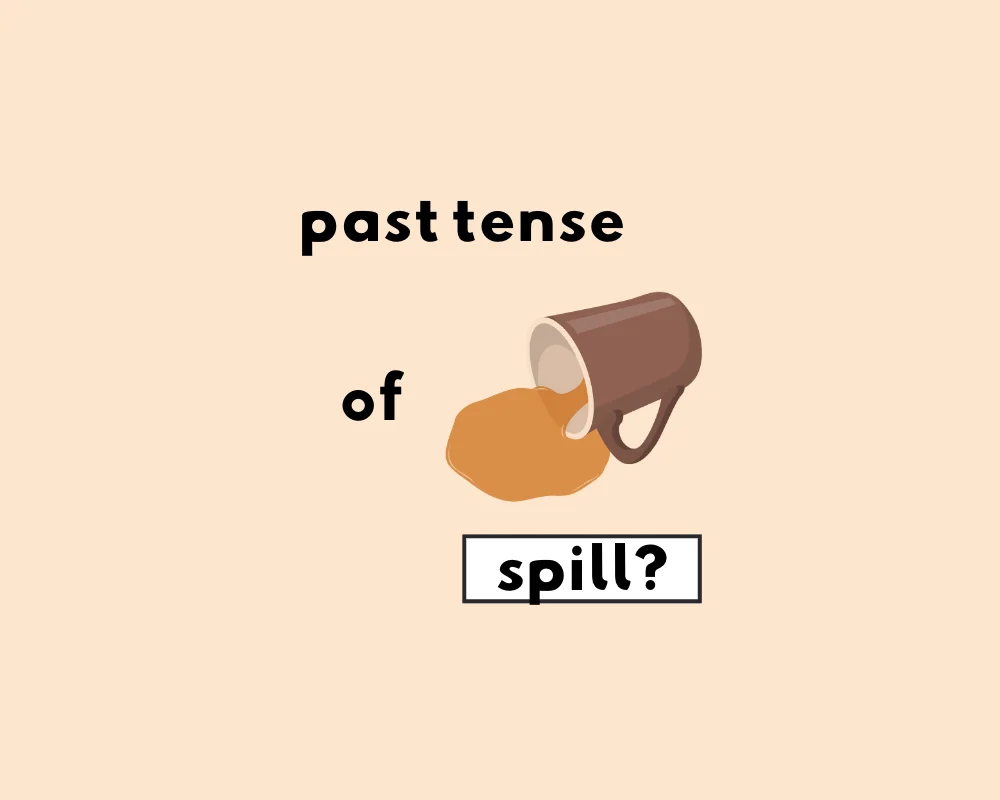
Contents
Toggle
What’s the past tense of “spill”?
Is it, ‘there’s no use crying over spilt milk’, or spilled milk? Is the past tense of the verb spill spilt or spilled? Let’s take a closer look.
Forms of spill
| present | past | future | |
| simple | I spill | I spilled/spilt | I will spill |
| continuous | I am spilling | I was spilling | I will be spilling |
| perfect | I have spilled/spilt | I had spilled/spilt | I will have spilled/spilt |
| perfect continuous | I have been spilling | I had been spilling | I will have been spilling |
1. Spill is present tense: Don’t pour too much; it might spill over.
2. Will spill is the future tense: I’ll spill my drink on you if you don’t stop moving!
3. Spills is third-person present singular: She spills coffee on her blouse every morning.
4. Spilling is the present participle: You’re spilling juice on the carpet!
5. Spilt/spilled is past tense: I spilled milk on the floor accidentally
6. Spilled/spilt is the past participle: I’ve spilt coffee down my blouse!
The verb, spill is understood as “to cause or allow to run or fall from a container, especially accidentally or wastefully: to spill a bag of marbles; to spill milk.” Also: spill the beans as an “informal way to say disclose something confidential”.
The gist: spilt or spilled
As it turns out, both spilt and spilled are accepted as the past tense and past participle conjugations of spill. Spilled is favoured in American English as both the past tense and past participle.
British English prefers spilt, also for both past forms. Most English-speaking countries outside of the US use British English; so best practice is to stick to one and stay consistent.
| base verb | past tense | past participle |
| lean | leant/leaned | leant/leaned |
| leap | leapt/leaped | leapt/leaped |
| learn | learnt/learned | learnt/learned |
| spoil | spoilt/spoiled | spoilt/spoiled |
| spill | spilt/spilled | spilt/spilled |
| deal | dealt | dealt |
Examples of spill, present tense
1. The sippy cup is supposed to be leak resistant and not allow any liquid to spill from the lid.
2. We do not need to spill the water if we don’t want to.
3. Don’t pour too much; it might spill over.
4. The oil spill in the Baltic could have been avoided.
5. Don’t spill water on your suit.
Examples of spilled/spilt, past tense
1. I spilled the glass of milk.
2. I spilt coffee down my blouse!
3. I accidentally spilled my drink all over him.
4. As the saying goes—it’s no use crying over spilt milk.
5. Light spilled from the windows.
Examples of spilled/split as a past participle
1. Critical reactions were decidedly spilt after the release.
2. The sand had spilt from the fire bucket.
3. The hazards of the pill have had much ink spilt on them.
4. Water had spilled out of the bucket onto the floor.
5. Thousands of gallons of crude oil were spilled into the ocean.
Practice questions: forms of “spill”
| Questions | Answer options: |
|---|---|
| 1. True or false: “To spill” can be a regular or irregular verb. | a. true b. false |
| 2. True or false: “Spill” looks the same in the present and past tense. | a. true b. false |
| Choose the correct verb form to complete each sentence: | |
| 3. Don’t pour too much; it might spill over. | a. spill b. spilling c. spilt |
| 4. I’ll spill my drink on you if you don’t stop moving! | a. spilling b. spills c. spill |
| 5. I’ve spilt coffee down my blouse! | a. spilling b. spilt c. spills |
| 6. I spilled milk on the floor accidentally | a. spilling b. spills c. spilled |
| 7. You’re spilling juice on the carpet! | a. spills b. will spill c. spilling |
Answers
- a
- b
- a
- c
- b
- c
- c
Origin of the word spill
From etymology online on spill (v.):
Old English spillan “destroy, mutilate, kill,” also in late Old English “to waste,” variant of spildan “destroy,” from Proto-Germanic *spilthjan.
Learn about verbs
Sources
- Oxford Learner’s, spill.
- Origin of the verb, spill.










